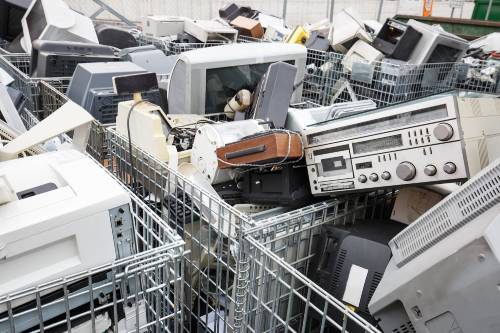
Several electronic products last for a long time but may eventually be replaced. At that stage, they’re described as e-waste, an informal term for electronic equipment used by individuals and businesses. Such items can be easily recycled, reused, or refurbished.
According to statistics, the UK is presently one of the leading producers of e-waste, producing about 1.6 million tonnes of e-waste as of 2019. The current rate of electronic waste worldwide is around 53.6 million tonnes. Such statistics have made it more crucial to pay attention to e-waste recycling. Systems are still being implemented to properly recover and recycle these items to help protect the environment.
What Items Constitute E-waste?
Several items have been categorised as e-waste, but discussions are still ongoing on whether some appliances fall under this category, such as microwaves. However, some items that are currently described as e-waste include:
- radios
- televisions
- computers
- copiers
- VCRs
Why Should You Recycle Old E-Waste?
It’s essential to recycle old e-waste primarily because of the danger they pose to the environment. Studies reveal that about 40% of e-waste is wrongfully exported or dumped in other countries, causing significant environmental damage. This effect is due to the possible contaminants e-waste contains, such as metals, which can be Bree food supplies and water bodies if e-waste is not properly handled.
Additionally, some metals in e-waste can easily be used for technological developments which can contribute to energy production, such as solar panels and wind turbines. Some of these metals can even be used for medical items such as pacemakers. Therefore, recycling e-waste can help salvage and reserve these metals for future use.
The WEEE Directive
WEEE stands for Waste Electrical and Electronic Equipment. According to the Environment Agency, this is one of the UK’s most rapidly increasing waste streams. The European Union issued a directive in 2012, known as the WEEE Directive, to help control how electrical and electronic waste is managed, which is in force in the UK under the Waste Electrical and Electronic Regulations, 2013.
Some of the key highlights of this Directive include:
- Producers and distributors of electronic and electrical equipment are responsible for paying for collecting, recovering and treating WEEE.
- Distributors have to provide customers with a take-back system to dispose of WEEE items at no charge.
- Individuals and businesses must properly dispose of their e-waste.
What Should You Do With Your E-waste?
You can contribute in your small way to help minimise the impact of e-waste on the environment. The well-known phrase ‘Reduce, Reuse, Recycle’ can guide you in managing your e-waste. Working with a company such as Recycling Your IT will ensure that all electrical and electronic waste will be dealt with correctly.
